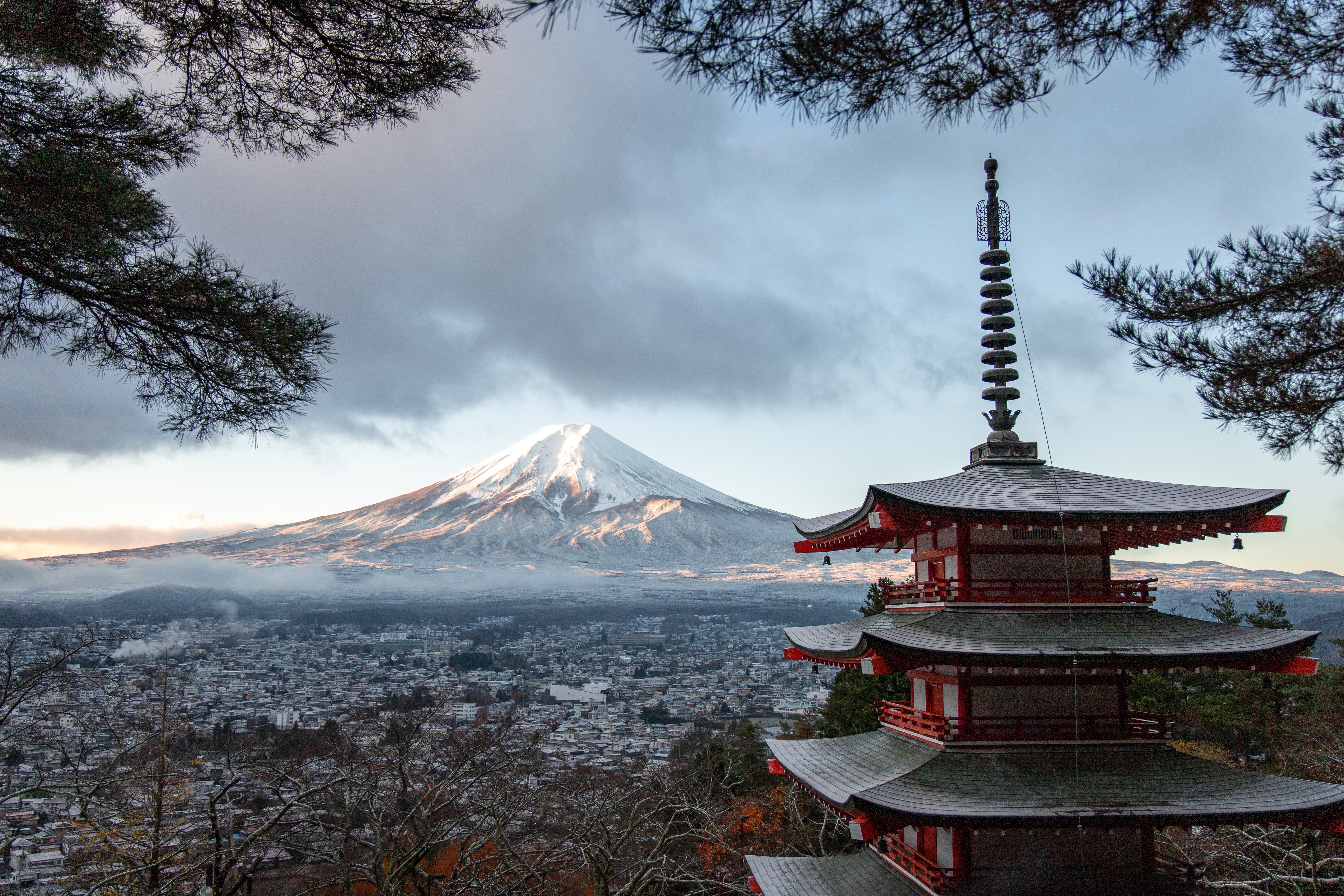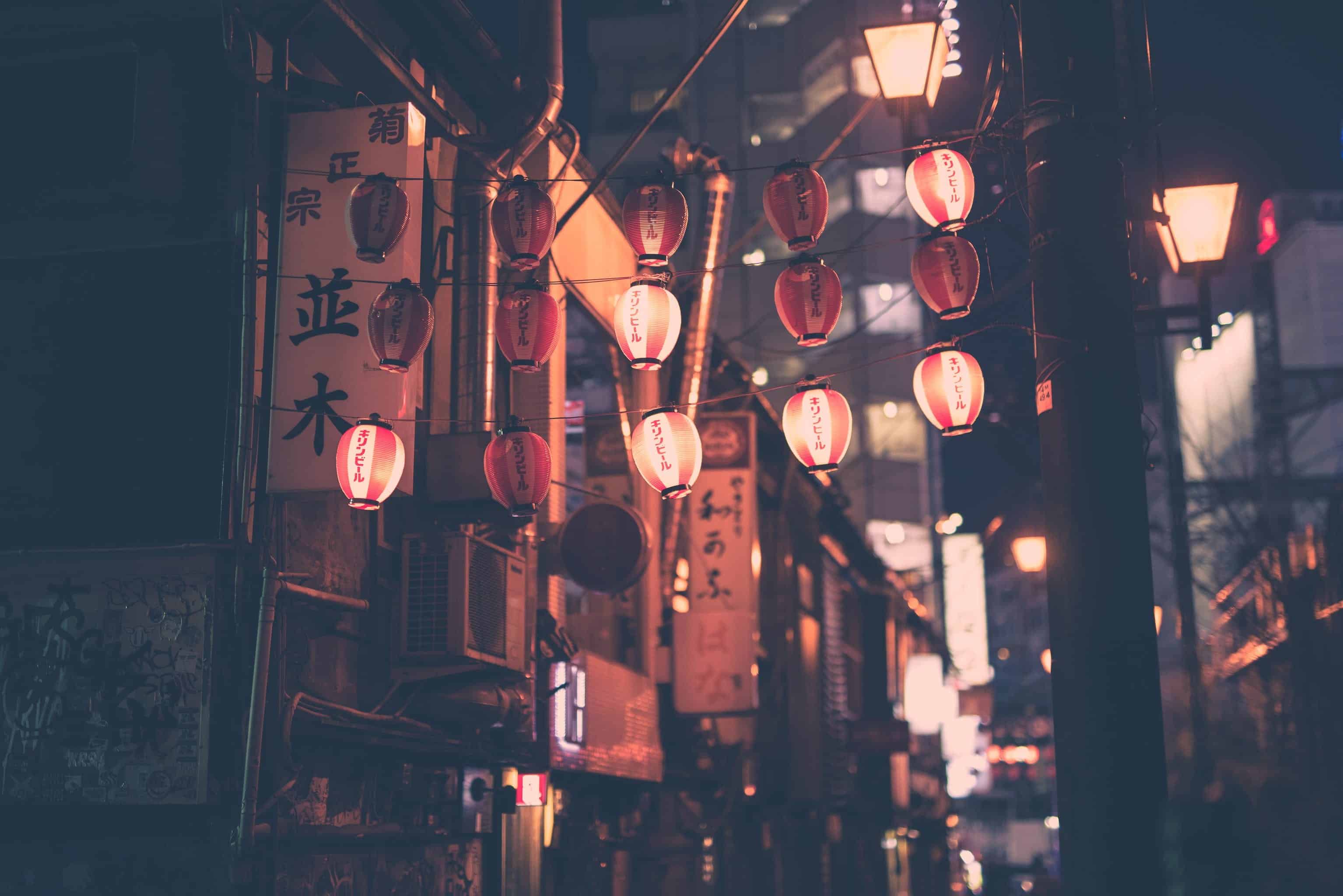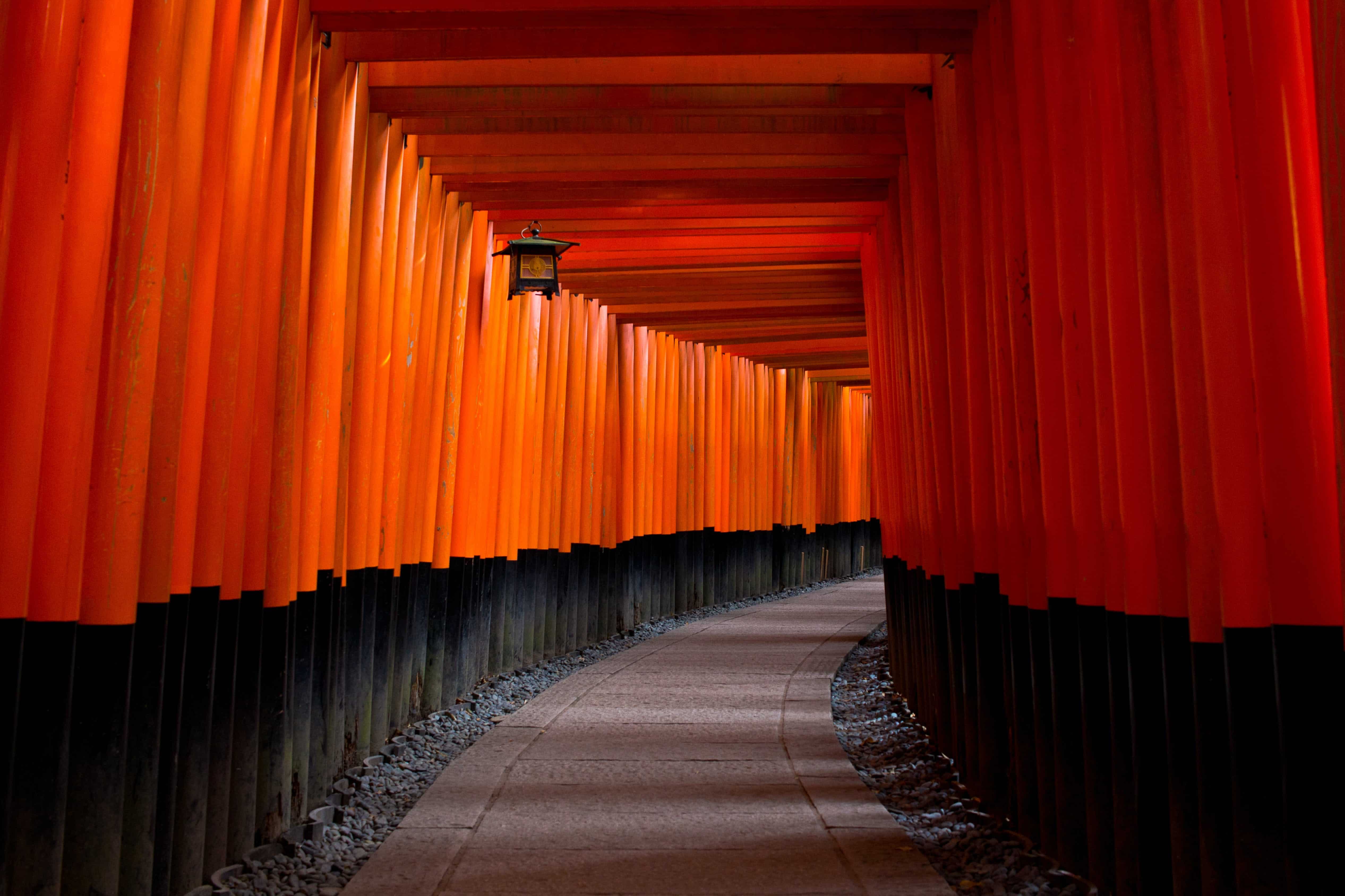
48 Japanese Proverbs, Quotes and Sayings
Japanese is renowned for its short but highly meaningful proverbs or 諺 (ことわざ) — kotowaza. Because they’re deeply entwined with the language and culture, it’s helpful to study them as a Japanese learner.
Just take a look at all of these timeless bits of wisdom and insight into life and practice your Japanese while doing so.
Contents
- Japanese Quotes and Sayings (Kanyouku)
- 1. 石の上にも三年 — Three years on a rock
- 2. 天に唾する — Spitting at the sky
- 3. 出る杭は打たれる — The nail that sticks out gets hammered down
- 4. 七転び八起き — Fall seven times, get up eight
- 5. 花より団子 — Dumplings over flowers
- 6. 知恵は磨けば光る — Wisdom shines when polished
- 7. 水は水 — Water is water
- 8. 虎穴に入らずんば虎子を得ず — If you don’t enter the tiger’s cave, you won’t catch its cub
- 9. 口は災いの元 — The tongue is the source of calamity
- 10. 瓜の蔓に茄子はならぬ — An eggplant doesn’t grow on a melon vine
- 11. 二兎を追う者は一兎をも得ず — One who chases two rabbits catches neither
- 12. 一寸先は闇 — Darkness is just one inch away
- 13. 目から鱗 — A fish from the eyes
- Japanese Proverbs (Iinarawashi)
- 14. 内弁慶 — A warlord at home
- 15. 口が滑る — A slip of the mouth
- 16. 暖簾に腕押し — To push noren (Japanese hanging curtains) with arms
- 17. 七転び八起き — Fall seven times, stand up eight
- 18. 案ずるより産むが易し — Giving birth to a baby is easier than worrying about it
- 19. 知らぬが仏 — Not knowing is Buddha
- 20. 見ぬが花 — Not seeing is a flower
- 21. 地獄に仏 — My Buddha in Hell
- 22. 朝飯前 — Before the morning meal
- 23. 寿司詰め — Packed like sushi
- 24. 腹八分に医者いらず — Eight-tenths full keeps the doctor away
- 25. 砂を噛むよう — Like chewing on sand
- 26. 鯛も一人はうまからず — Eaten alone, even sea bream loses its flavor
- 27. 窓際族 — The window tribe
- 28. 偽客 — Cherry blossom
- 29. 水商売 — Water business
- 30. 相変わらず — The same as ever
- Japanese Four-character Sayings (Yojijukugo)
- 31. 一期一会 — One opportunity, one encounter
- 32. 起死回生 — Wake from death and turn to life
- 33. 一日一歩 — One day one step
- 34. 因果応報 — Bad causes, bad results
- 35. 温故知新 — Review past, know future
- 36. 一石二鳥 — One stone, two birds
- 37. 花鳥風月 — Flower, bird, wind, moon
- 38. 一日千秋 — One day, a thousand autumns
- 39. 十人十色 — Ten people, ten colors
- 40. 天真爛漫 — Innocent and lively like the sky
- 41. 前途有望 — A promising future lies ahead
- 42. 自画自賛 — Self-praise
- 43. 意気揚々, 大器晩成 — High-spirited, great talents mature late
- 44. 不眠不休, 因果応報 — Sleepless nights, tireless days; retribution for one’s deeds
- 45. 危機一髪 — A hair’s breadth from crisis
- 46. 自業自得 — One’s own doing, one’s own getting
- 47. 盛者必衰, 八方美人 — Success will not last forever, a person who tries to please everyone (and may not be genuine in his/her intentions)
- 48. 石橋を叩いて渡る — Hitting a stone bridge before crossing it
- Why Study Japanese Quotes, Proverbs and Sayings?
- And One More Thing...
Download: This blog post is available as a convenient and portable PDF that you can take anywhere. Click here to get a copy. (Download)
Japanese Quotes and Sayings (Kanyouku)

慣用句 (かんようく) — Kanyouku roughly translates to “idiomatic phrases.” They encapsulate some of the most famous quotes and sayings in Japan, including the following.
1. 石の上にも三年 — Three years on a rock
Hiragana: いしのうえにもさんねん
Romaji: Ishi no ue ni mo sannen
Meaning: Patience and perseverance lead to success
You could also translate this as “good things take time.” So, spending three metaphorical (and, I imagine, boring) years on a rock could actually be a good thing.
2. 天に唾する — Spitting at the sky
Hiragana: てんにつばする
Romaji: Ten ni tsuba suru
Meaning: To do something pointless
This quote is about engaging in futile or foolish actions. It reminds me of the famous Spanish novel “Don Quixote,” where the book’s title character has “battles” with windmills.
3. 出る杭は打たれる — The nail that sticks out gets hammered down
Hiragana: でるくいはうたれる
Romaji: Deru kui wa utareru
Meaning: Someone who stands out too much will be brought down
Conformity is highly valued in Japanese society, so standing out isn’t usually considered a good thing. You could say this is similar to the English “tall poppy syndrome.” You’ll also sometimes see this written as 出る釘は打たれる (でるくぎはうたれる) — Deru kugi wa utareru.
4. 七転び八起き — Fall seven times, get up eight
Hiragana: ななころびやおき
Romaji: Nanakorobi yaoki
Meaning: No matter how many times you fall, always rise and try again
If you want to succeed in life, perseverance is key.
5. 花より団子 — Dumplings over flowers
Hiragana: はなよりだんご
Romaji: Hana yori dango
Meaning: One should value substance over form
One popular Japanese drama actually uses a homophone of this idiom for its title: “花より男子” (“Boys Over Flowers”). It’s to emphasize the theme of the show, where Domyouji (the main male lead) falls in love with Makino (the main female lead) because she’s resourceful and practical rather than superficial.
6. 知恵は磨けば光る — Wisdom shines when polished
Hiragana: ちえはみがけばひかる
Romaji: Chie wa migakeba hikaru
Meaning: Continuous learning and effort enhance one’s wisdom and knowledge
As we grow older, we become wiser through experience. And we can enhance that wisdom even more through active learning.
7. 水は水 — Water is water
Hiragana: みずはみず
Romaji: Mizu wa mizu
Meaning: Accept things as they are
This saying is a reminder to acknowledge simplicity and truth.
8. 虎穴に入らずんば虎子を得ず — If you don’t enter the tiger’s cave, you won’t catch its cub
Hiragana: こけつにいらずんばこじをえず
Romaji: Koketsu ni irazunba koji wo ezu
Meaning: No risk, no reward
Put in another way, taking risks leads to success.
9. 口は災いの元 — The tongue is the source of calamity
Hiragana: くちはわざわいのもと
Romaji: Kuchi wa wazawai no moto
Meaning: Be careful what you say
This is a reminder to be cautious with your words, for speaking carelessly can lead to trouble.
10. 瓜の蔓に茄子はならぬ — An eggplant doesn’t grow on a melon vine
Hiragana: うりのつるになすはならぬ
Romaji: Uri no tsuru ni nasu wa naranu
Meaning: People can’t change who they are
Everyone has a core personality that more or less stays the same throughout their lifetime. They can change how they outwardly express that personality, but it’s still what it is.
11. 二兎を追う者は一兎をも得ず — One who chases two rabbits catches neither
Hiragana: にとをおうものはいっとをもえず
Romaji: Nito wo ou mono wa itto wo mo ezu
Meaning: Focusing on too many things at once may result in achieving none of those things
This proverb reminds me of a Taylor Swift lyric: “Chase two girls, lose the one.”
12. 一寸先は闇 — Darkness is just one inch away
Hiragana: いっすんさきはやみ
Romaji: Issun saki wa yami
Meaning: Be cautious, as danger may be very close
It’s just a theory of mine, but perhaps this saying is rooted in Japan’s long history with earthquakes and natural disasters in general.
13. 目から鱗 — A fish from the eyes
Hiragana: めからうろこ
Romaji: Me kara uroko
Meaning: Something unexpected or surprising
Imagine a fish literally going out of your eyes a la a character from a Junji Ito work. Creepy and gross, right?
Japanese Proverbs (Iinarawashi)

言い習わし (いいならわし) — Iinarawashi are short proverbs that are habits of speech. These are often sayings that are more literal and less figurative than idioms, but always share a bit of wisdom or truth.
14. 内弁慶 — A warlord at home
Hiragana: うちべんけい
Romaji: Uchi benkei
Meaning: A braggart
Someone who’s a warlord at home toots his own horn to excess. This person is someone who is boisterous and boastful in private but meek in public. They’re “all bark and no bite,” in other words.
15. 口が滑る — A slip of the mouth
Hiragana: くちがすべる
Romaji: Kuchi ga suberu
Meaning: To let out a secret
This is just like the English idiom “the cat’s out of the bag” or “spill the beans.”
16. 暖簾に腕押し — To push noren (Japanese hanging curtains) with arms
Hiragana: のれんにうでおし
Romaji: Noren ni ude oshi
Meaning: A useless, ineffective action
You can push at the curtains all you want, and not get anywhere.
17. 七転び八起き — Fall seven times, stand up eight
Hiragana: ななころびやおき
Romaji: Nana korobi yaoki
Meaning: When life knocks you down, stand back up
Motivate yourself through tough times with this idiom. That eighth time standing up is what counts in the end—not the seven falls.
18. 案ずるより産むが易し — Giving birth to a baby is easier than worrying about it
Hiragana: あんずるよりうむがやすし
Romaji: Anzuru yori umu ga yasushi
Meaning: Our fear is worse than the actual threat of danger
Granted, infant mortality rates were higher back in the day when our medical knowledge was primitive at best. Still, it’s often the case that our negative feelings about something often amplify the actual danger from that thing.
19. 知らぬが仏 — Not knowing is Buddha
Hiragana: しらぬがほとけ
Romaji: Shiranu ga hotoke
Meaning: Ignorance is bliss
Basically, not knowing or thinking about something worrisome makes you more relaxed.
20. 見ぬが花 — Not seeing is a flower
Hiragana: みぬがはな
Romaji: Minu ga hana
Meaning: Life doesn’t always look the way you expected it to
This gorgeous Japanese idiom means that reality can’t compete with imagination.
21. 地獄に仏 — My Buddha in Hell
Hiragana: じごくにほとけ
Romaji: Jigoku ni hotoke
Meaning: Someone helpful in a bad situation or place
We all know that one person who’ll reach through the flaming wreckage of your life and pull you out—much like a Buddha in hell.
22. 朝飯前 — Before the morning meal
Hiragana: あさめしまえ
Romaji: Asa meshi mae
Meaning: A piece of cake
Want to indicate that a task is super easy? Use this phrase to say that it’s so easy, you could have it done before breakfast.
23. 寿司詰め — Packed like sushi
Hiragana: すしづめ
Romaji: Sushi zume
Meaning: Packed like sardines
This delicious analogy means being squeezed together tightly in a small space. I guess that makes Japan’s professional train pushers more like sushi chefs, right?
24. 腹八分に医者いらず — Eight-tenths full keeps the doctor away
Hiragana: はらはちぶにいしゃいらず
Romaji: Hara hachi bu ni isha irazu
Meaning: Don’t eat too much
This is just like our “an apple a day” saying, but I’d say the Japanese version is a little more helpful for long-term health. Beyond the simple mantra about eating in moderation, this Japanese idiom politely expresses the cultural taboo of excess in Japan.
25. 砂を噛むよう — Like chewing on sand
Hiragana: すなをかむよう
Romaji: Suna wo kamu you
Meaning: Something incredibly dull, tedious or uninteresting
You could say this is the Japanese equivalent of “like watching paint dry.”
26. 鯛も一人はうまからず — Eaten alone, even sea bream loses its flavor
Hiragana: たいもひとりはうまからず
Romaji: Tai mo hitori wa umakarazu
Meaning: When you’re eating alone, even a delicious meal can lose its appeal
Even in modern Japan, it’s believed that a significant part of the pleasure of eating is sitting around a table and sharing a meal with loved ones. This philosophy of hospitality, family time and shared meals takes on even more significance in our busy modern lives.
27. 窓際族 — The window tribe
Hiragana: まどぎわぞく
Romaji: Mado giwa zoku
Meaning: Useless employee; employees who don’t do much work.
This is a little morsel of Japanese business culture, which refers to employees who don’t do much work (basically, sit and gaze out of the window all day), but are too difficult to fire because of Japanese labor laws and societal restraints. These window gazers, or “seat warmers,” are typically ignored and given little to no work rather than being fired.
In recent years, this problem has both gotten better (thanks to the introduction of a voluntary retirement system) and worse (since employees who don’t take the offer to retire are banished to a room to spend their time away from others with nothing to do).
28. 偽客 — Cherry blossom
Hiragana: さくら
Romaji: Sakura
Meaning: A fake hired by an individual, a business or a production to be a decoy
You probably know the word 桜 (さくら), as in the ephemeral pink blossoms. But when spelled with the kanji for “false” (偽) and “customers” (客), the word takes on a different meaning altogether.
In this context, a sakura is one who pretends to be an audience member, a customer or a mourner—whatever the situation calls for. The word is also often spelled with its katakana, サクラ, to indicate this alternate meaning.
29. 水商売 — Water business
Hiragana: みずしょうばい
Romaji: Mizu shoubai
Meaning: A business with notoriously fluid, transient employees and revenue
Customers and employees flow through these like water (hence the expression). These are businesses with high turnover rates and uncertain profits like the entertainment industry and nightlife, including bars, host clubs, etc.
30. 相変わらず — The same as ever
Hiragana: あいかわらず
Romaji: Aikawarazu
Meaning: Something hasn’t changed at all
This is actually a pretty common expression. If you tune in to Japanese TV, dramas or anime regularly, chances are you’ve heard of this at least once.
Japanese Four-character Sayings (Yojijukugo)

四字熟語 (よじ じゅくご) — Yojijukugo are Four Character Phrases, sets of four words combined into one phrase with idiomatic or proverbial meanings.
They’re made up of four kanji characters, and often come from Chinese proverbs. As such, they can use different readings and meanings of kanji than you might be used to, and can sometimes be difficult for learners to grasp.
31. 一期一会 — One opportunity, one encounter
Hiragana: いちごいちえ
Romaji: Ichi go ichi e
Meaning: You only have one life
This expresses how every encounter we have is a once-in-a-lifetime experience—the present moment will never happen again after it passes. It’s a modern yet more poetic expression than the English YOLO.
Many Japanese four-character idioms are derived from Chinese ones (known as chengyu), but this is an example of an indigenous Japanese idiom derived from the Japanese tea ceremony.
32. 起死回生 — Wake from death and turn to life
Hiragana: きしかいせい
Romaji: Kishikaisei
Meaning: Turn a bad situation around
As dark as this one sounds, it’s an optimistic saying that’s generally used to encourage others to see the silver lining in the dark clouds.
33. 一日一歩 — One day one step
Hiragana: いちにちいっぽ
Romaji: Ichinichi ippo
Meaning: Take one step a day toward our goals
This Japanese expression reminds us that, when we’re trying to achieve a goal, it helps to break it down into manageable parts and clear those one at a time.
34. 因果応報 — Bad causes, bad results
Hiragana: いんがおうほう
Romaji: Inga ouhou
Meaning: What goes around comes around
This emphasizes the Buddhist philosophy of karmic retribution.
35. 温故知新 — Review past, know future
Hiragana: おんこちしん
Romaji: Onko chishin
Meaning: Remember past lessons for future endeavors
This phrase asks us to look back at the past and learn from it, and to take that knowledge into the future. It’s similar to the English “history repeats itself,” as it implies that your knowledge of the past will help you know what can happen in future situations.
36. 一石二鳥 — One stone, two birds
Hiragana: いっせきにちょう
Romaji: Isseki ni chou
Meaning: To kill two birds with one stone
This is exactly like its English counterpart, albeit a little more concise.
37. 花鳥風月 — Flower, bird, wind, moon
Hiragana: かちょうふうげつ
Romaji: Ka chou fuu getsu
Meaning: An expression demonstrating love and admiration for nature
This is a poetic phrase that doesn’t have any sort of direct translation, but instead concisely expresses the beauty of nature by listing the kanji for “flower, bird, wind, moon.”
38. 一日千秋 — One day, a thousand autumns
Hiragana: いちにちせんしゅう
Romaji: Ichinichi senshuu
Meaning: Slow down
This one reminds me of the English idiom, “a watched pot never boils.”
39. 十人十色 — Ten people, ten colors
Hiragana: じゅうにんといろ
Romaji: Juunin to iro
Meaning: Everyone is unique, with their own individuality and preferences
This four-character quote is the equivalent of the English “to each his own.”
40. 天真爛漫 — Innocent and lively like the sky
Hiragana: てんしんらんまん
Romaji: Tenshinranman
Meaning: Someone who is cheerful, carefree or with an open and straightforward personality
I don’t know about you, but I think this is the kind of person we’d all like to have as a good friend.
41. 前途有望 — A promising future lies ahead
Hiragana: ぜんとゆうぼう
Romaji: Zento yuubou
Meaning: Be hopeful about the future
Even though many of the proverbs so far are about being careful and measured, there is room for hope and optimism, too.
42. 自画自賛 — Self-praise
Hiragana: じがじさん
Romaji: Jigajisan
Meaning: Boasting too much about oneself
As you’ve seen, too much self-admiration or blowing one’s own horn is looked down upon in Japanese culture.
43. 意気揚々, 大器晩成 — High-spirited, great talents mature late
Hiragana: いきようよう、たいきばんせい
Romaji: Iki youyou, taiki bansei
Meaning: Being full of enthusiasm is great, but real talent takes a while to develop
This is yet another reminder not to rush things.
44. 不眠不休, 因果応報 — Sleepless nights, tireless days; retribution for one’s deeds
Hiragana: ふみんふきゅう、いんがおうほう
Romaji: Fumin fukyu, inga ouhou
Meaning: Working hard without rest is good, but karma will eventually catch up
If you’ve ever pulled an all-nighter for work or studying, you’ll relate to this one. I know I do.
45. 危機一髪 — A hair’s breadth from crisis
Hiragana: ききいっぱつ
Romaji: Kiki ippatsu
Meaning: On the verge of a crisis or a very close call
I always think of the frequency of natural disasters in Japan when I read this type of proverb.
46. 自業自得 — One’s own doing, one’s own getting
Hiragana: じごうじとく
Romaji: Jigou jitoku
Meaning: You reap what you sow
This wise quote reminds us that our actions always have consequences.
47. 盛者必衰, 八方美人 — Success will not last forever, a person who tries to please everyone (and may not be genuine in his/her intentions)
Hiragana: じょうしゃひっすい、はっぽうびじん
Romaji: Jousha hissui, happou bijin
Meaning: Success is temporary, people pleaser
You may have noticed that people tend to befriend the successful. But you know who your real friends are when you’re down on your luck, right?
48. 石橋を叩いて渡る — Hitting a stone bridge before crossing it
Hiragana: いしばしをたたいてわたる
Romaji: Ishibashi wo tataite wataru
Meaning: Be cautious and prepared for challenges before facing them
Just as you’ll want to check that the stone bridge you’re about to cross is sturdy, you’ll want to make sure that everything is in order before you embark on a major journey.
You can find these Japanese quotes, proverbs and sayings used in context in the video library of FluentU.
FluentU takes authentic videos—like music videos, movie trailers, news and inspiring talks—and turns them into personalized language learning lessons.
You can try FluentU for free for 2 weeks. Check out the website or download the iOS app or Android app.
P.S. Click here to take advantage of our current sale! (Expires at the end of this month.)

Why Study Japanese Quotes, Proverbs and Sayings?

Japanese people are seldom straightforward. Because of their culture’s preference for politeness, they often say things in an indirect way. Sometimes they even answer a question with a Japanese proverb or saying.
Because of this, as a Japanese learner, you need to learn these popular sayings, too. They contain thousands of years of wisdom, so it’s definitely not a waste of time to study them.
Here are the main ways studying Japanese proverbs, quotes and sayings can help your learning journey:
- Cultural insight: Proverbs reflect cultural values. Therefore, knowing them gives you a deeper understanding of Japanese society.
- Language mastery: Proverbs offer unique expressions, helping you expand your vocabulary and enhance your language skills.
- Contextual usage: When you’re able to grasp the nuances of these expressions, you can use them effectively in diverse situations.
- Memory aid: Memorizing idioms helps you with vocabulary retention and recall.
- Cultural sensitivity: Knowing proverbs demonstrates cultural awareness, leading to positive interactions with native speakers.
- Literary appreciation: Sayings enrich literary understanding, thereby making you more appreciative of poetry and traditional arts.
- Critical thinking: The process of analyzing Japanese quotes hones your ability to read Japanese carefully, not to mention enhance your understanding of human nature.
- Self-expression: Japanese proverbs allow nuanced and expressive communication with others.
- Cultural integration: Using proverbs helps you build connections and rapport, making it easy to become part of a Japanese-speaking community.
So there you have it. I hope you’ve gained some insights from these ancient Japanese proverbs, quotes and sayings. I also hope you’ll have a chance to hear one in real life—or better yet, use one.
And One More Thing...
If you love learning Japanese with authentic materials, then I should also tell you more about FluentU.
FluentU naturally and gradually eases you into learning Japanese language and culture. You'll learn real Japanese as it's spoken in real life.
FluentU has a broad range of contemporary videos as you'll see below:

FluentU makes these native Japanese videos approachable through interactive transcripts. Tap on any word to look it up instantly.

All definitions have multiple examples, and they're written for Japanese learners like you. Tap to add words you'd like to review to a vocab list.

And FluentU has a learn mode which turns every video into a language learning lesson. You can always swipe left or right to see more examples.

The best part? FluentU keeps track of your vocabulary, and gives you extra practice with difficult words. It'll even remind you when it’s time to review what you’ve learned. You'll have a 100% personalized experience.
Start using the FluentU website on your computer or tablet or, better yet, download the FluentU app from the iTunes or Google Play store. Click here to take advantage of our current sale! (Expires at the end of this month.)


